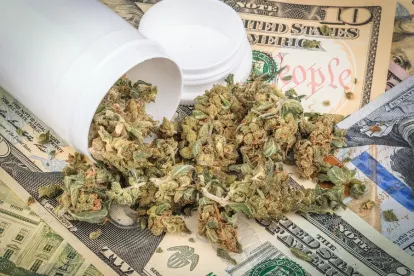On February 22, 2021, Governor Murphy signed three separate cannabis reform bills into law that formally legalize the use and possession of recreational marijuana in the Garden state: (1) the “New Jersey Cannabis Regularly, Enforcement Assistance, and Marketplace Modernization Act” (the “Cannabis Act”) (NJ A21), which legalizes the recreational use and possession of cannabis or cannabis products (collectively “cannabis items”) for adults; (2) a decriminalization law (NJ A1897), which legalizes the possession of up to six ounces of cannabis and provides for certain criminal and civil justice reforms related to marijuana and hashish offenses, and (3) a “clean up” bill (NJ A5342/NJ S3454), which concerns penalties for underage cannabis offenders and dictates how police may interact with youth offenders. We summarize the relevant provisions for employers below.
Employment Provisions of the Cannabis Act
The Cannabis Act contains express workplace-related provisions that will have significant impact on many New Jersey employers. It establishes nondiscrimination rules for recreational cannabis users or marijuana users, codifies that employers do not have a duty to accommodate cannabis use in the workplace, and establishes procedures for employer drug testing.
Although the Cannabis Act’s employment provisions are effective immediately, they do not become operative until the New Jersey Cannabis Regulatory Commission (“CRC”) adopts implementing regulations. The CRC, which is composed of five members appointed by the governor, is responsible for the regulation and oversight of the development, regulation, and enforcement of personal recreational and medical cannabis use. Governor Murphy has appointed the CRC members and rulemaking will commence within 180 days of the law’s enactment, by i.e., August 21, 2021. Employers, however, should also note that the CRC’s initial rules will only be in effect for up to one year. Therefore, New Jersey employers should be prepared for possible revisions next year.
Nondiscrimination Provisions
Under the Cannabis Act, employers cannot penalize an applicant or employee because that person does or does not smoke, vape, aerosolize or otherwise use cannabis items by:
-
refusing to hire the applicant;
-
terminating the employee; or
-
taking an adverse employment action against the employee with respect to compensation, terms, conditions, or other privileges of employment.
The Cannabis Act is unique in providing employment nondiscrimination protection to cannabis users, as most other state laws legalizing recreational marijuana do not provide any express protections to users.
Drug Testing
Although employers may not discriminate against employees who use cannabis, employers are under no obligation to permit recreational use or to accommodate medical use in the workplace. The Cannabis Act, as well as the New Jersey’s Compassionate Use of Medical Marijuana Act, emphasizes that employers have the right to maintain a drug-and alcohol-free workplace and may implement policies prohibiting the use of cannabis items or intoxication during work hours. To that end, the Cannabis Act allows employers to drug test:
-
upon reasonable suspicion of an employee’s cannabis use at work;
-
upon finding observable signs of intoxication related to cannabis items at work;
-
as part of a work-related accident investigation;
-
randomly;
-
as part of pre-employment screening; or
-
as part of regular screening of current employees to determine use during work hours.
The law permits employers to use the results of any such drug test when determining the appropriate employment action concerning the employee, but mere positive test results will not alone be sufficient to take an adverse job action, even for safety sensitive positions. The Cannabis Act requires that any employee drug test include “scientifically reliable objective testing methods and procedures,” such as testing of blood, urine, or saliva, plus a physical evaluation by a certified “Workplace Impairment Recognition Expert” (“WIRE”) to determine the employee’s state of impairment. The statute directs the CRC to develop a certification program in consultation with the state’s Police Training Commission, to train persons “in detecting an employee’s usage of, or impartment from, a cannabis item or other intoxicating substance, and for assisting in the investigation of workplace accidents.” An existing employee or contractor may be the WIRE.
Employment Provisions of the Decriminalization Law
Section 15 of the decriminalization law sets out strict parameters for employer inquiries related to an applicant’s marijuana-related criminal history. Specifically, the law provides that employers may not “rely on, require an applicant to disclose, or take any adverse action against an applicant on the basis of any arrest, charge, conviction, or adjudication of delinquency” related to cannabis manufacture, distribution, or possession when making an employment decision. These provisions do not apply to positions in law enforcement corrections, the judiciary, homeland security, or emergency management.
The Commissioner of the New Jersey Division of Labor and Workforce Development enforces civil penalties for violations. Employers that violate Section 15 can be fined up to $1,000 for the first violation, $2,000 for the second violation, and $10,000 for each subsequent violation.
The employment provisions of the decriminalization law are set to take effect five months after the enactment of the Cannabis Act, i.e., on August 1, 2021.
Employers may anticipate that the CRC will propose regulations in the up-coming months, which will go through a comment period before final adoption. In the meanwhile, employers should use this time to review their hiring, drug testing and substance abuse policies and procedures, including as to whether to continue to do pre-hire drug testing for cannabis.





 />i
/>i

